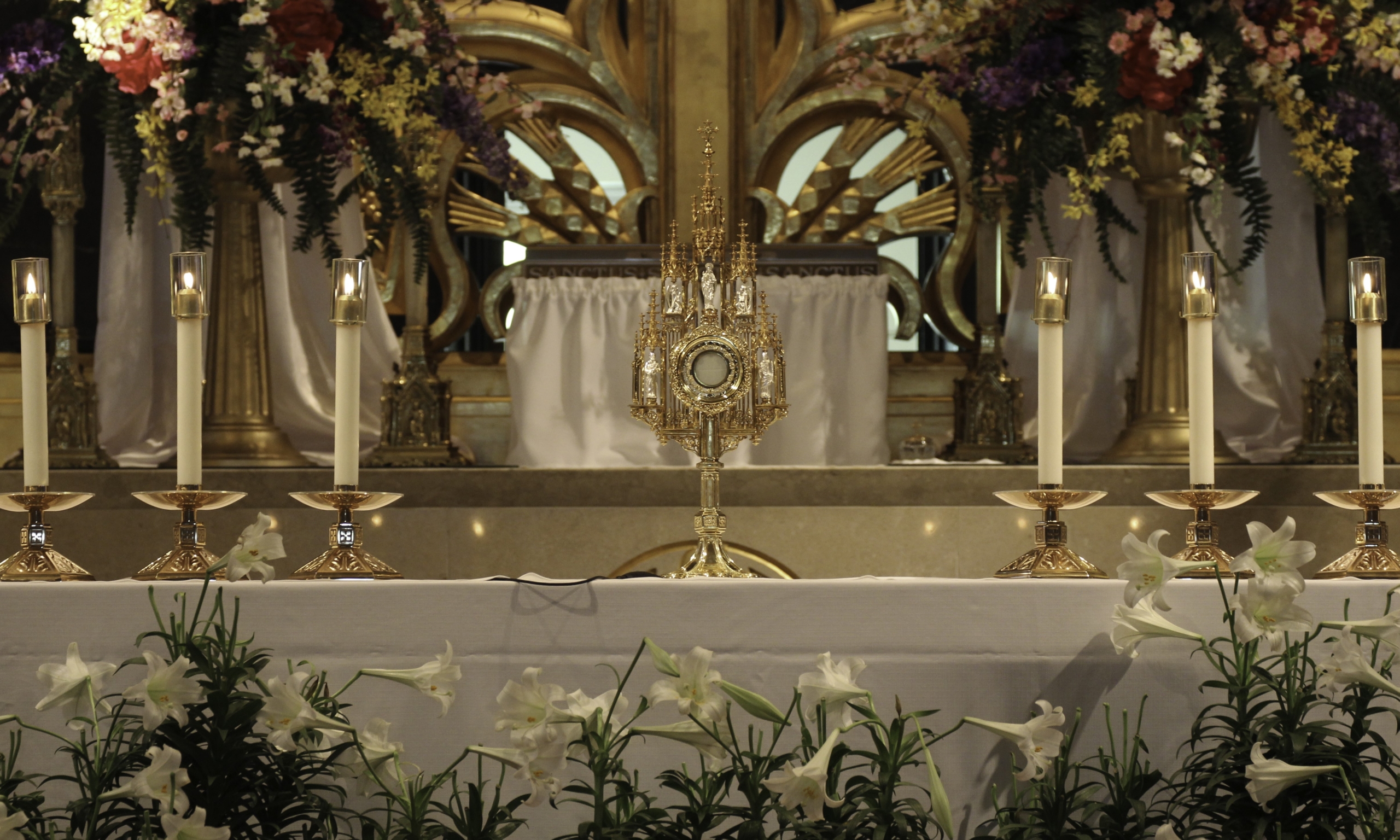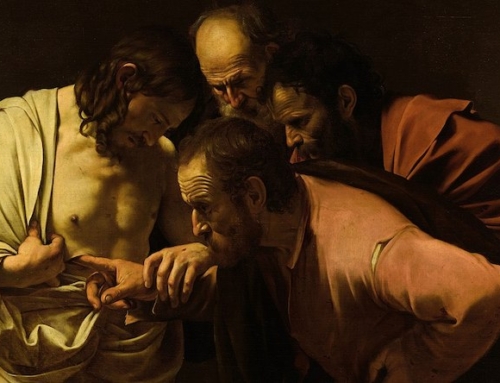Panis Vivus: An Essay on the Eucharist
A “panis vivus” essay is meant to convey, in no uncertain terms, that the Eucharist is really and truly the body, blood, soul, and divinity of Our Lord Jesus Christ. It is our collective response to the 2019 Pew Research Center survey, which reported that only a third of United States Catholics believe in the Real Presence.
O Sacred Banquet, in which Christ becomes our food, the memory of his Passion is celebrated, the soul is filled with grace, and the pledge of future glory is given to us.
If the Eucharist is “the source and summit of the Christian life” (CCC 1324), then it matters how we think and pray about it. Repeated prayers, such as the Our Father, teach us how to pray (cf. Luke 11:1) through the repetition of familiar words and postures. And so, several times a day, the friars recite the above antiphon, kneeling before the Blessed Sacrament. How might these words of Saint Thomas Aquinas teach us?
O Sacred Banquet. The banquet is a common image, ideally calling to mind the Wedding Feast in Revelation 19. In the Mass itself, the priest says, “Blessed are those called to the supper of the Lamb.” Still, given present circumstances, we might balk at this opening. It seems too much talk of a meal among friends could reduce the altar of sacrifice to a table, the Sacrament to a symbol, and the supernatural reality to a self-enclosed communion of attendees. Since last year’s poll projected that only a third of U.S. Catholics believe in transubstantiation, we urgently need clear Eucharistic teaching. Haven’t we heard enough about banquets and tables?
First, the O Sacred Banquet seems designed to teach; it’s a mini-creed of Eucharistic faith. In four steps, it clarifies what (or Who) this Sacred Banquet is:
Christ becomes our food. Aquinas writes: “The effect of this sacrament [here, grace] ought to be considered, first of all and principally, from what is contained in this sacrament, which is Christ” (ST III q.79 a.1). Only the doctrine of transubstantiation accounts for Christ’s sermon at Capernaum (John 6:22-59) and his unqualified words: “Take, eat; this is my body” (Matt 26:26). The memory of his Passion is celebrated. The Mass is a re-presentation, in an unbloody mode, of the One Sacrifice on Calvary, when the same “blood of the covenant” was “poured out” for our sins (Matt 26:27-28). The soul is filled with grace. Through the sacraments the Holy Spirit makes us “partakers of the divine nature” (2 Pet 1:3-4), even in this life. But the pledge of future glory is given to us: while we await “the glory that is to be revealed” (Rom 8:18), we possess here a foretaste of Heaven.
Notably, the O Sacred Banquet puts all four of its verbs in the present tense: through the unique efficacious signs instituted by Christ, past, present, and future are signified, now, for our sanctification (ST III q. 60 a. 3). Again, there’s a whole theology in this one prayer.
Lastly, the “sacred banquet” language is not just a cliché. Aristotle famously wrote that human friendship takes a certain amount of “eating salt together,” that is, of time and familiarity around a shared table (Nicomachean Ethics VIII.3). But when the Church speaks of the supper of the Lamb, she means primarily our communion with God, which is the basis for (and inseparable from) our communion as believers.
This idea, divine friendship, seemed foolish to the Philosopher. He thought there was such inequality between gods and men that they cannot be friends, and “do not even expect to be so” (Ethics VIII.7). True: God and human beings are not equals. But Jesus has revealed a new vocation for us: “No longer do I call you servants … but I have called you friends” (John 15:15). This charity which he offers, this “friendship of man for God” (ST II-II q.23 a.1), fulfills all true communion in the one Body of Christ.
Because the Eucharistic gift of divine friendship is the source of our human friendship in religious life, we friars need to turn to our Lord with these words throughout the day. But, in today’s world, a more widespread use of this devotion could “teach us how to pray.” It would be a constant reminder of the con-vivium, the life shared between God and man, given to us in this Sacred Banquet.
✠
Photo by Fr. Lawrence Lew, O.P. (used with permission)







